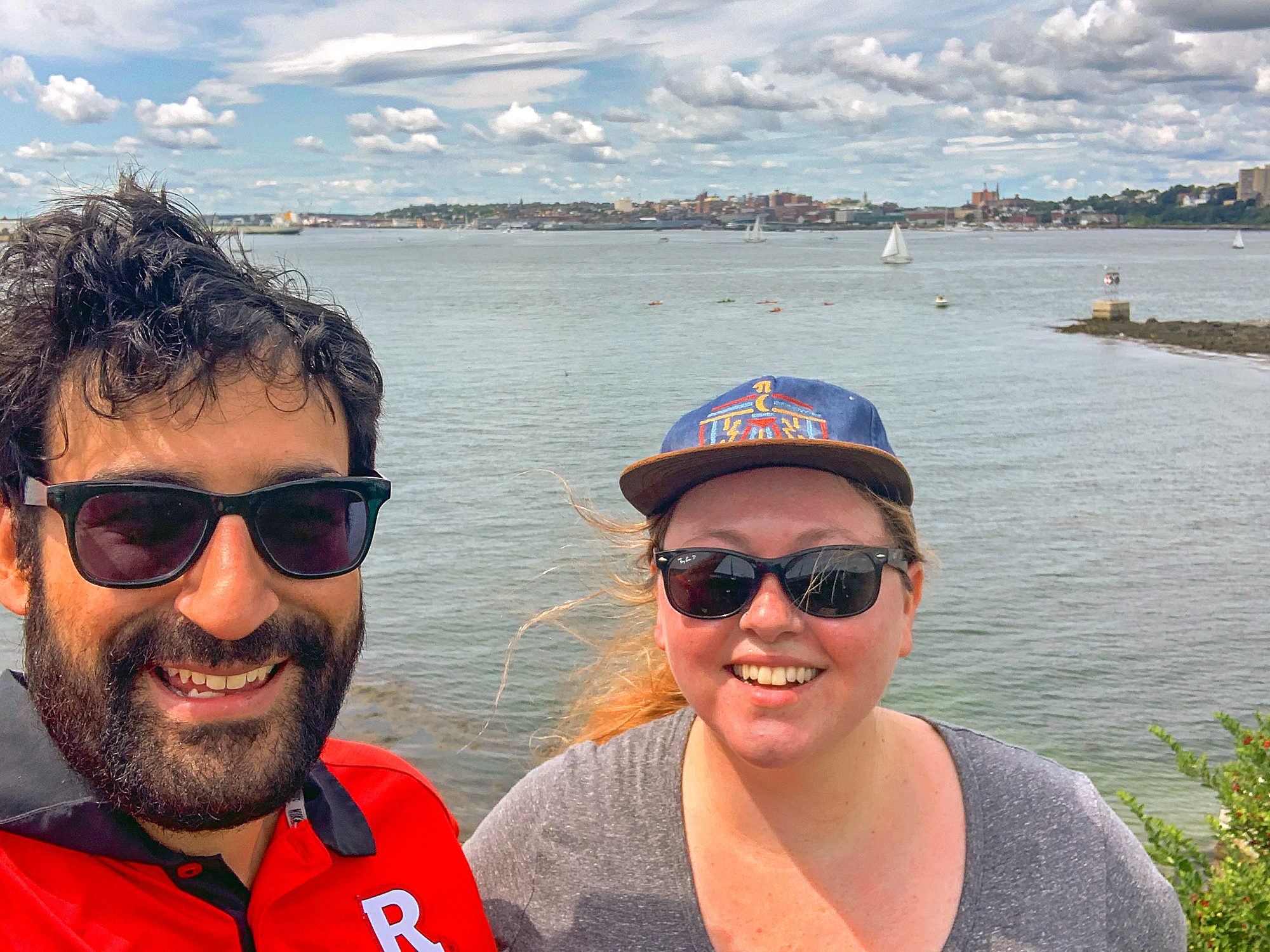- Fort Gorges is an abandoned fort on the coast of Portland, Maine.
- Located on an island ledge, it’s only accessible by private boat.
- We took a tour with Portland Paddle, which included two hours of kayaking and an hour exploring the fort with tour guides.
- Fort Gorges was built during the Civil War but was rendered obsolete by the time the war ended.
- Used for mine storage until the end of World War II, the fort was later abandoned and is now overrun by nature.
- The fort is falling apart, and the City of Portland, Maine, is hoping to restore it with the help of a fundraising organization called Friends of Fort Gorges.
- Visit Business Insider’s homepage for more stories.
We took a tandem sea kayak to Fort Gorges from Portland, Maine, which is only accessible by boat.
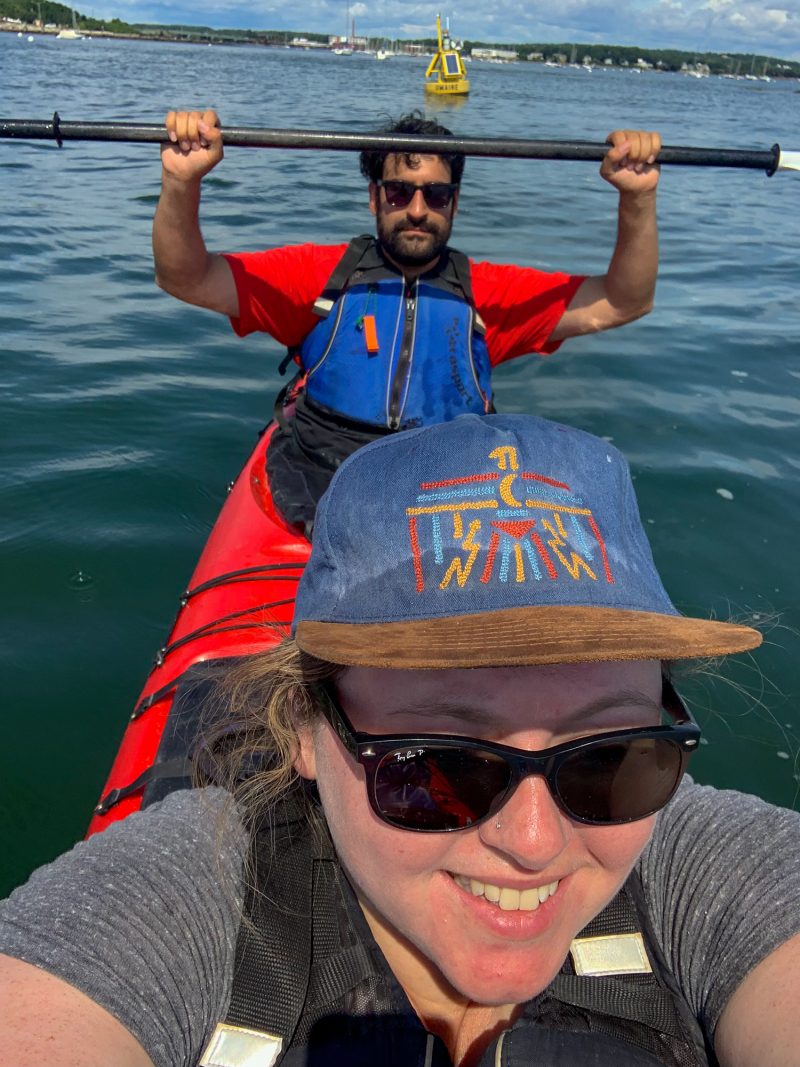
To get to the fort, you do have to cross boat channels. Ferries, cruise ships, and lobster boats all cross steadily throughout the day.
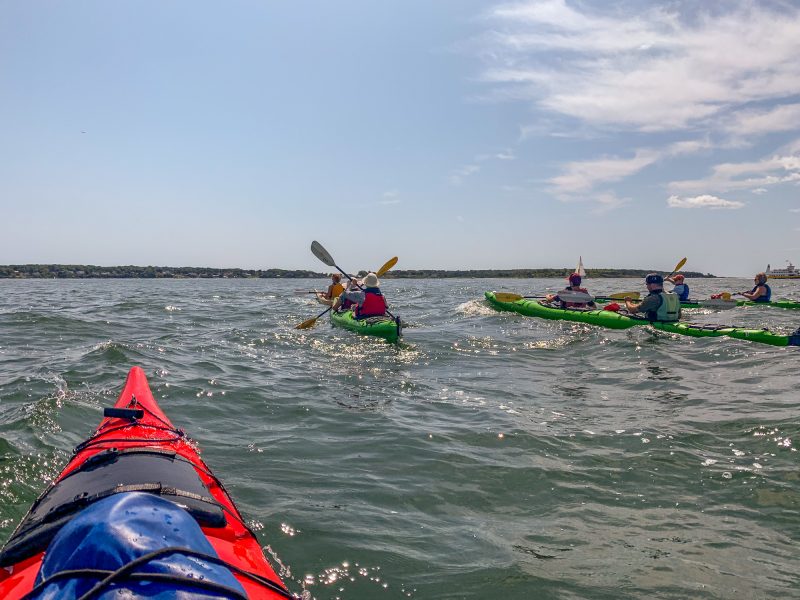
Source: Portland Paddle
The total trip is about 2.5 miles. Maine’s coast has dynamic sea conditions. This includes big tides and swift currents. When planning trips, time of day doesn’t matter so much as these conditions, which can be calm as a pond or too windy for tours depending on the day.
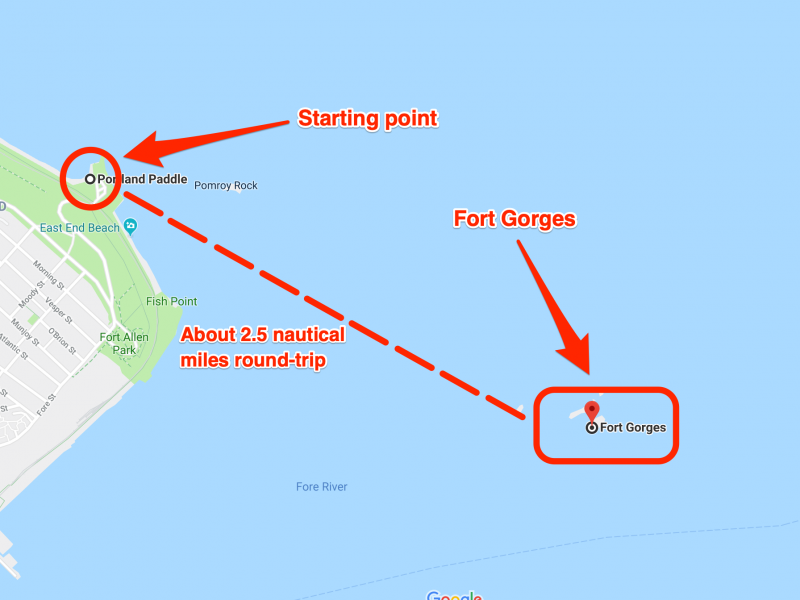
Source: Portland Paddle
We had to wear life vests in case anyone capsized, especially since the tide is known for being so unpredictable.

Source: Portland Paddle
Located on Hog Island Ledge, Fort Gorges is a granite fort that is completely surrounded by water.
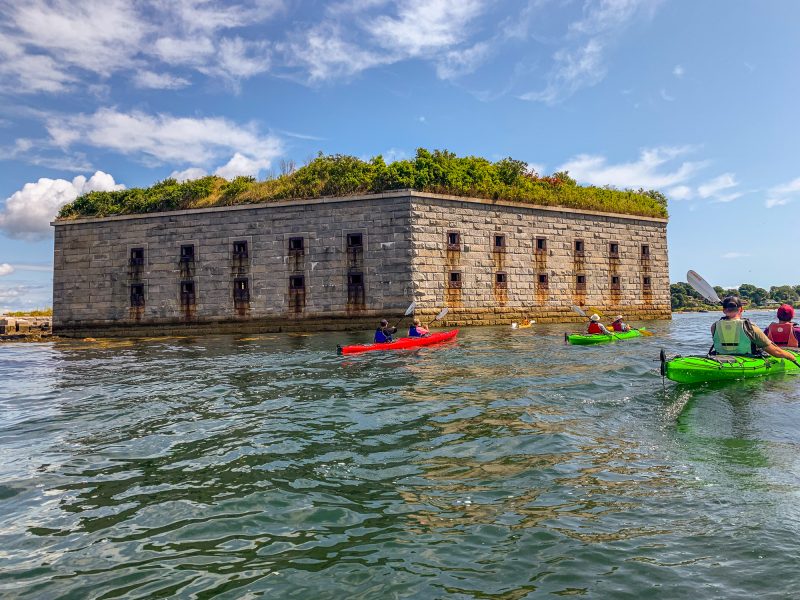
Source: Portland Paddle
Since there was another tour group at the launch where we were supposed to dock, we got to paddle around the perimeter of the fort while we waited for them to disembark.
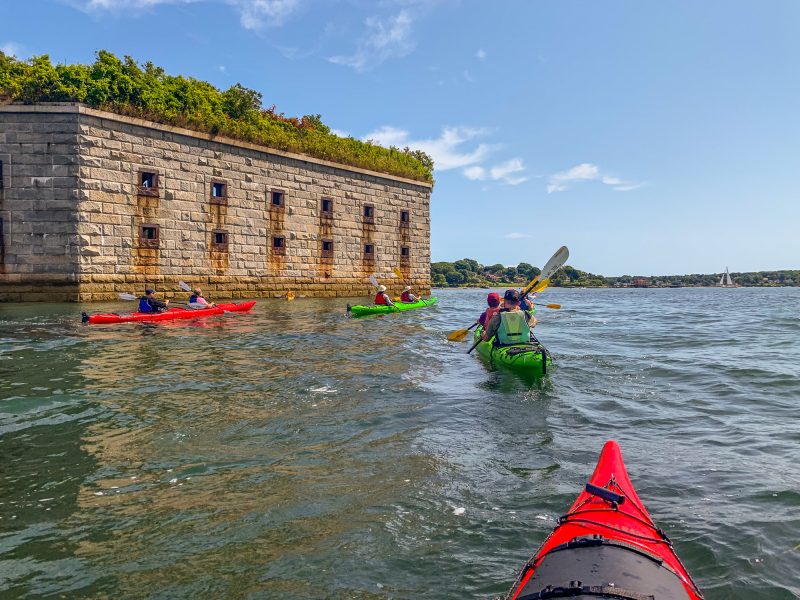
Source: Portland Paddle
This perk gave us the chance to see the exterior of the fort in great detail. The fort was made entirely of granite.
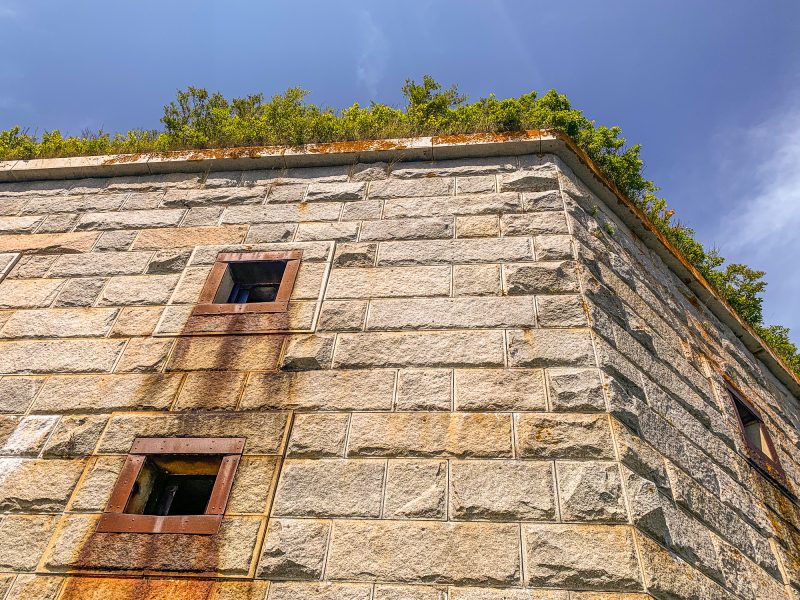
Source: Portland Paddle
The granite was quarried on the coast of Maine. Granite quarries were a huge industry on the Coast of Maine back in the 19th century.
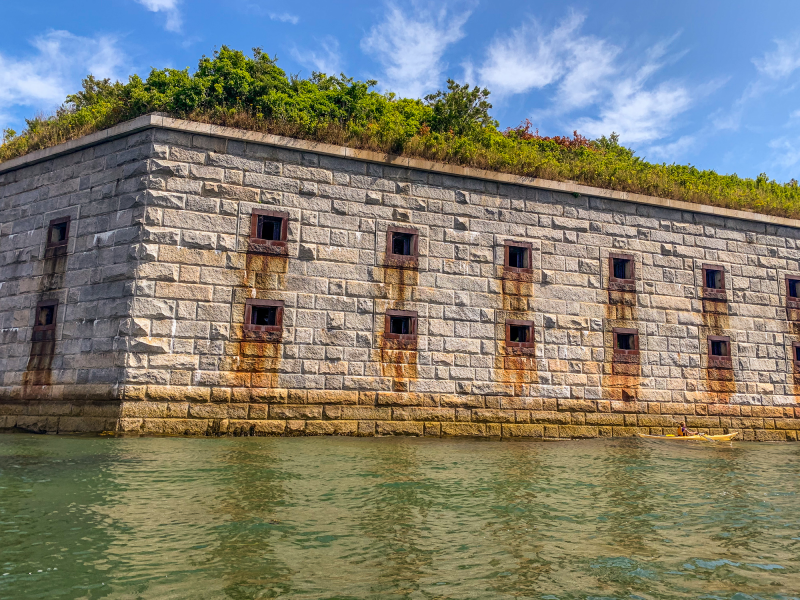
Source: Portland Paddle
Going around the fort also gave us a chance to see the surrounding wildlife.
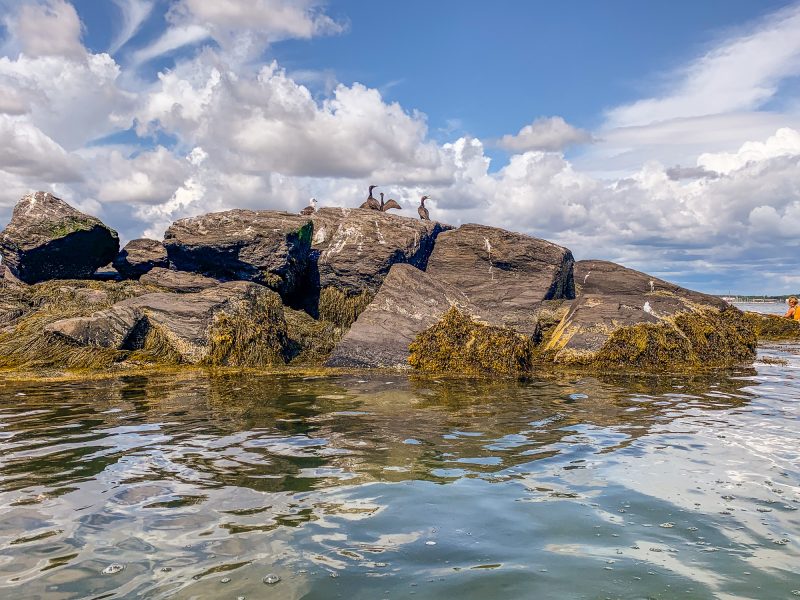
Source: Portland Paddle
Cormorants and gulls were perched on the rocks near the ledge. These birds live on ledges all over the coast of Maine.

Source: Portland Paddle
Once we arrived at the launch ...
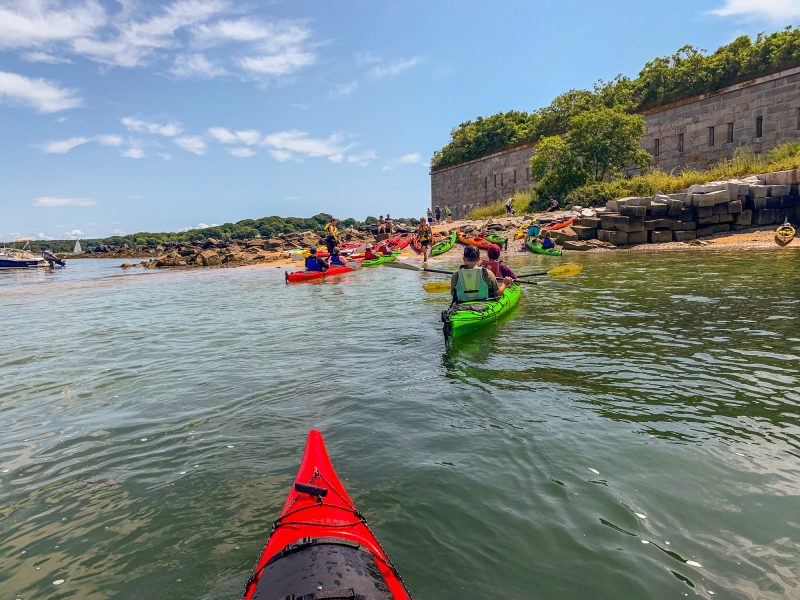
... we docked our kayaks and removed our life vests ...
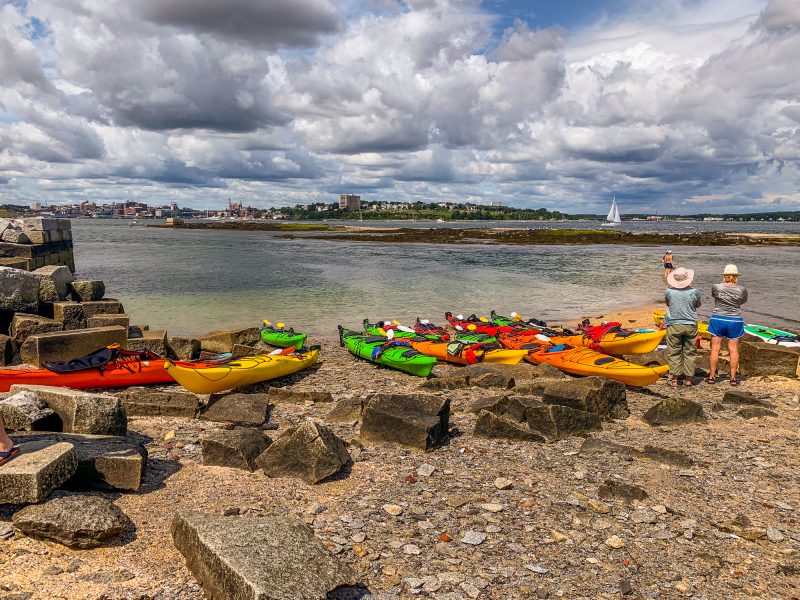
... and our tour guide led us to the entrance of the fort.
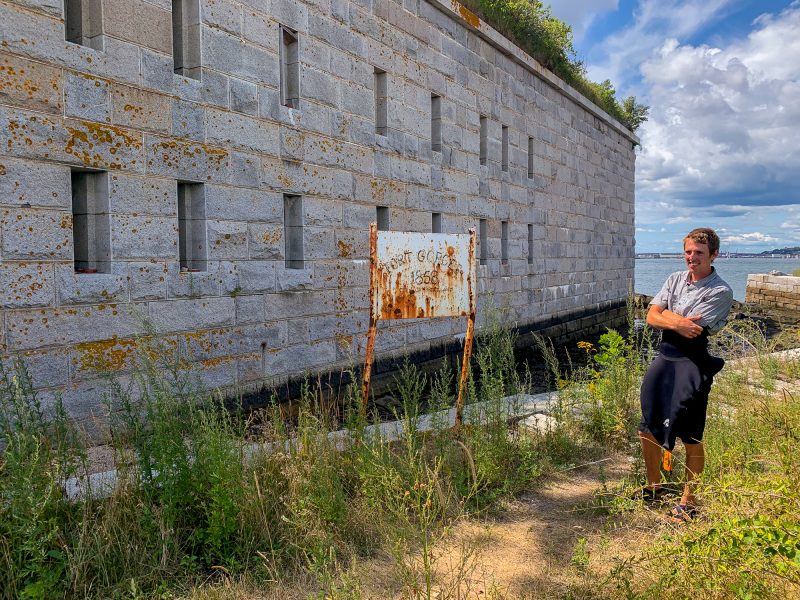
There was a warning sign in regard to fall hazards ...
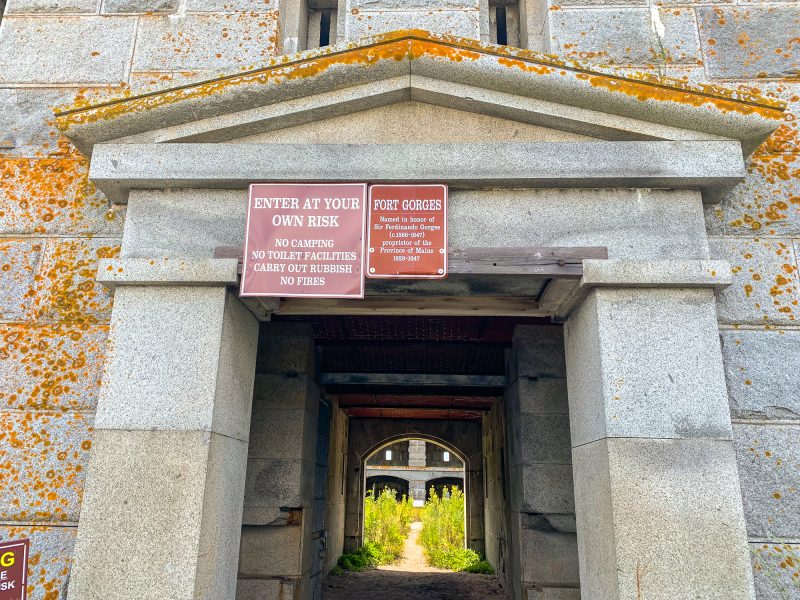
... make that two warning signs.
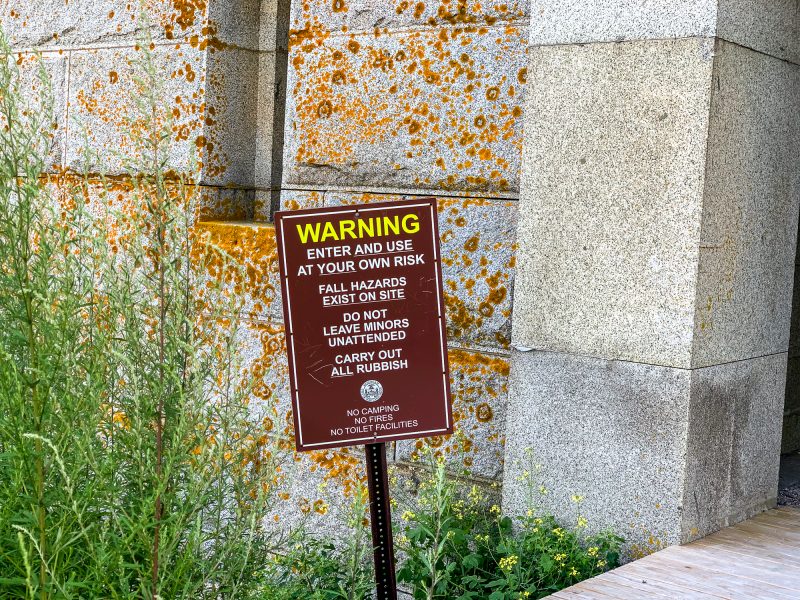
The idea to build Fort Gorges came up after the War of 1812 when US coastal towns were deemed vulnerable to attack.
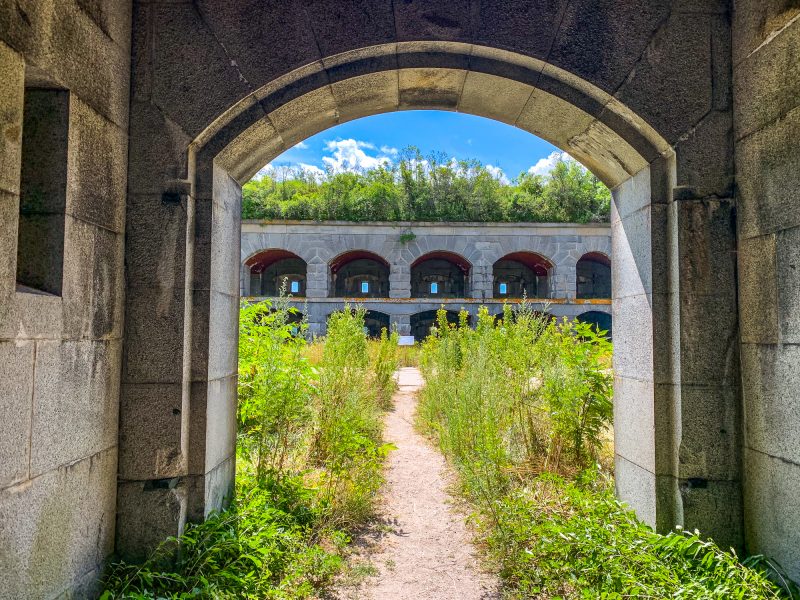
Source: "The Forts of Maine"
Construction on the fort began in 1858 and continued until the end of the civil war.
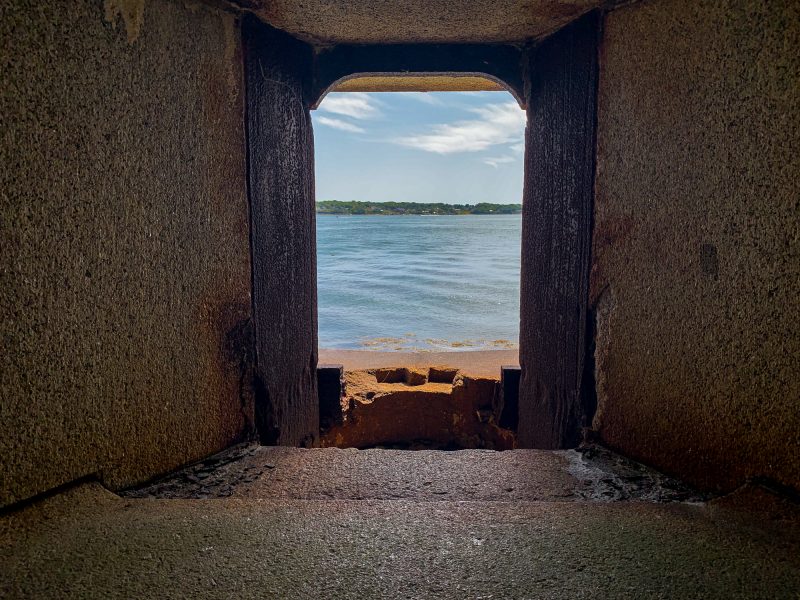
Source: Portland Paddle
The final design was an octagon with two sides omitted, forming the shape of a 'D.'
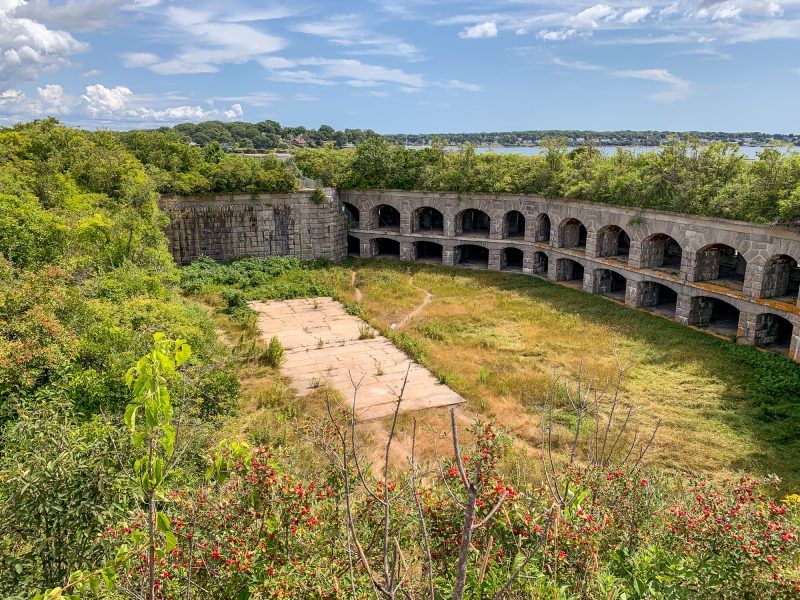
Source: "The Forts of Maine"
Fort Gorges looks a lot like Fort Sumner, except smaller, according to experts.
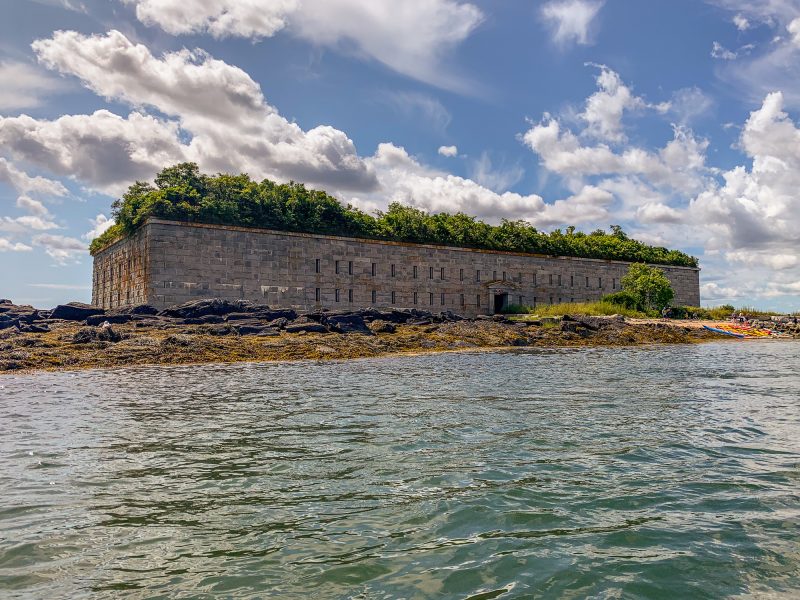
Source: "The Forts of Maine"
The fort was designed to hold two levels of canons — 28 canons on each level ...
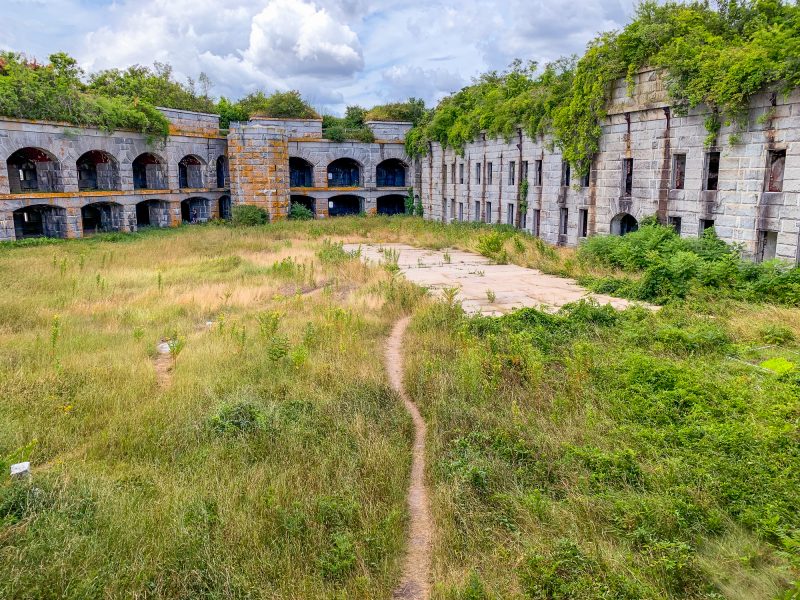
Source: "Harbor Forts: Essays"
... and 39 guns on the roof.
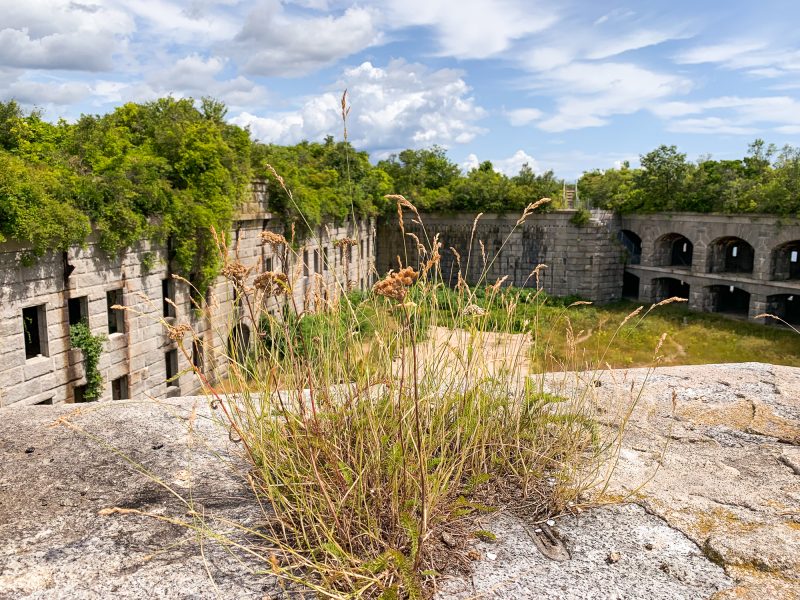
Source: "Harbor Forts: Essays"
Although it was made to house 500 soldiers, Fort Gorges didn't actually end up housing any, aside from fort workers and their families.
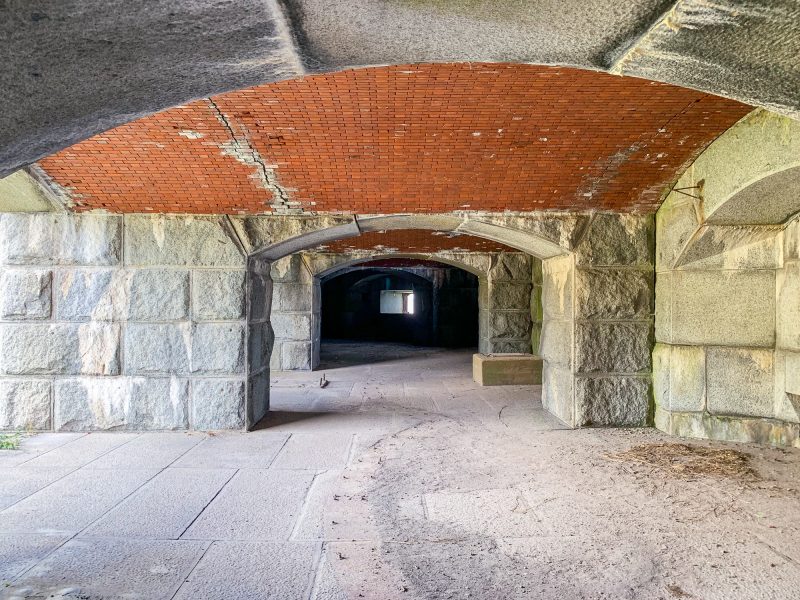
Source: "The Forts of Maine"
This is because, by the time the fort was completed, new explosive technology rendered the fort obsolete.
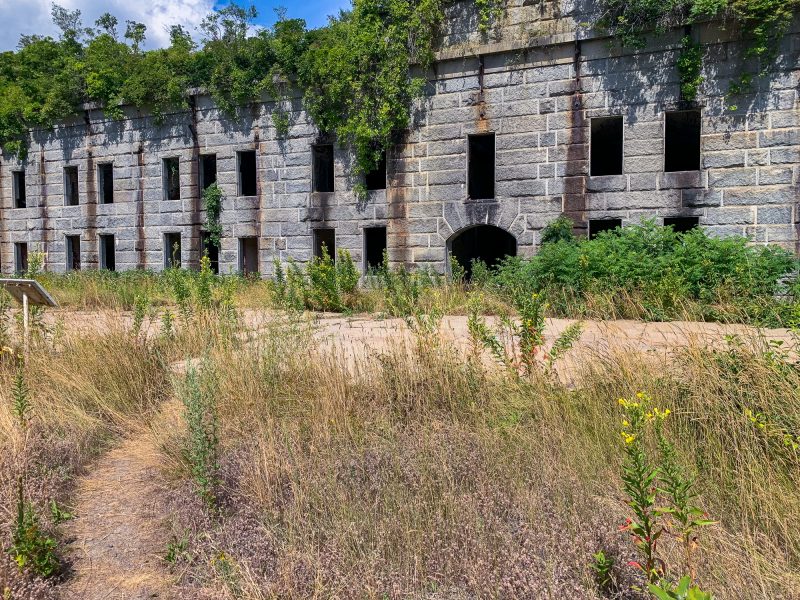
Source: "The Forts of Maine"
Instead, Fort Gorges was used to store mines during the Spanish-American War, and it was used to store submarine mines during World War II.
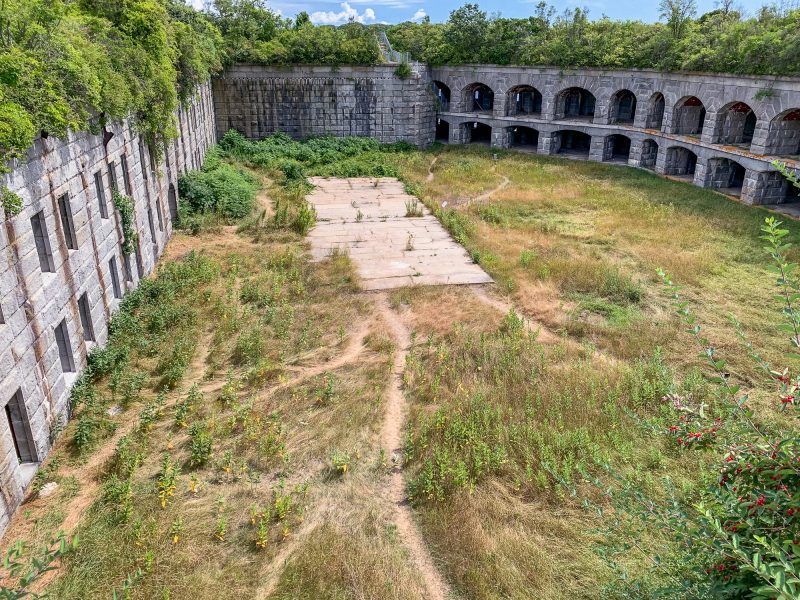
Source: "The Forts of Maine"
After it was rendered obsolete, sod was added to the top-level to insulate it for the latest weaponry, but the project was never finished. Over time, vegetation has grown in that sodded area.
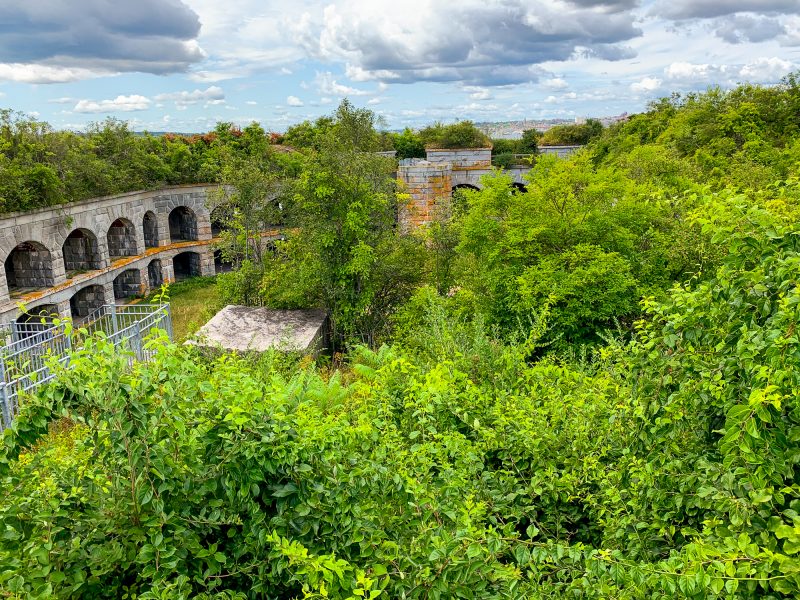
Source: Portland Paddle
The roof of the fort holds some treasures in its foliage, like this relic.
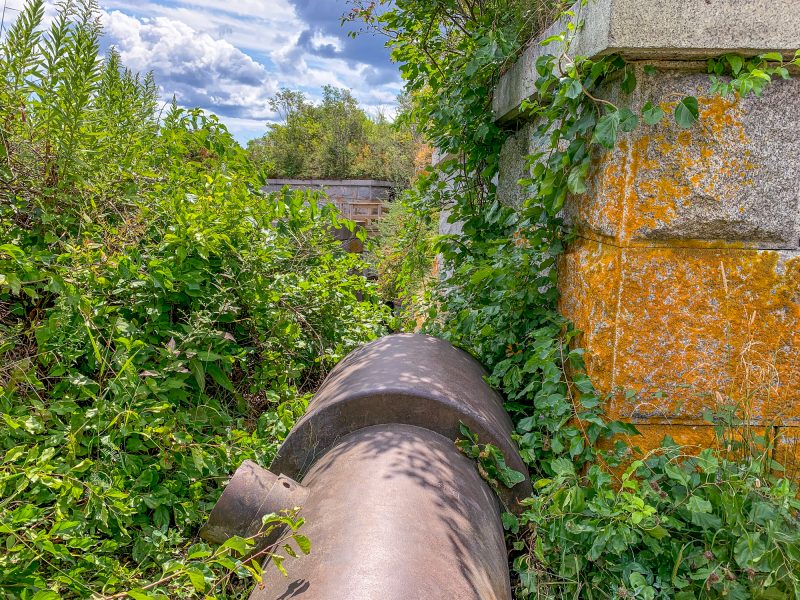
Source: Portland Paddle
This is a parrot rifle, and its the only Civil War relic that remains at Fort Gorges. All the other cannons from that time were sold for parts, but at 300 lbs, this one was too heavy and inconveniently placed to be moved. It was the biggest type of gun used during the Civil War.
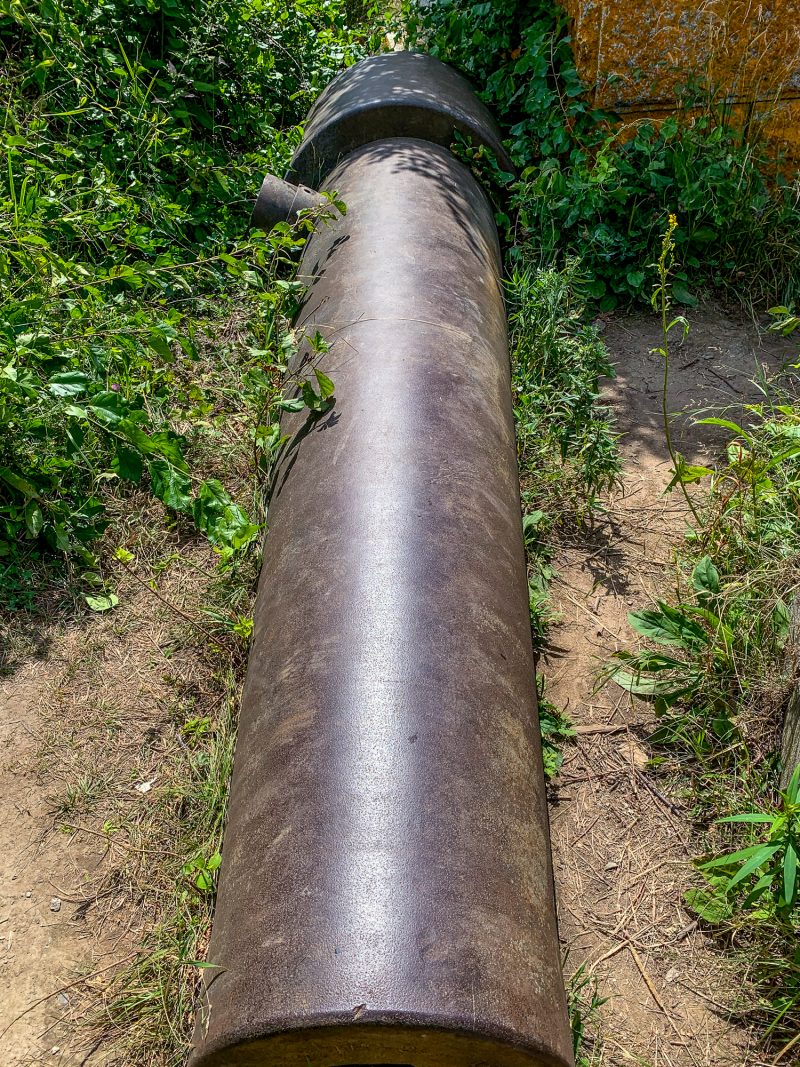
Source: Portland Paddle
The roof also houses this solar panel, which was installed in the last 20 years and has one purpose — ...
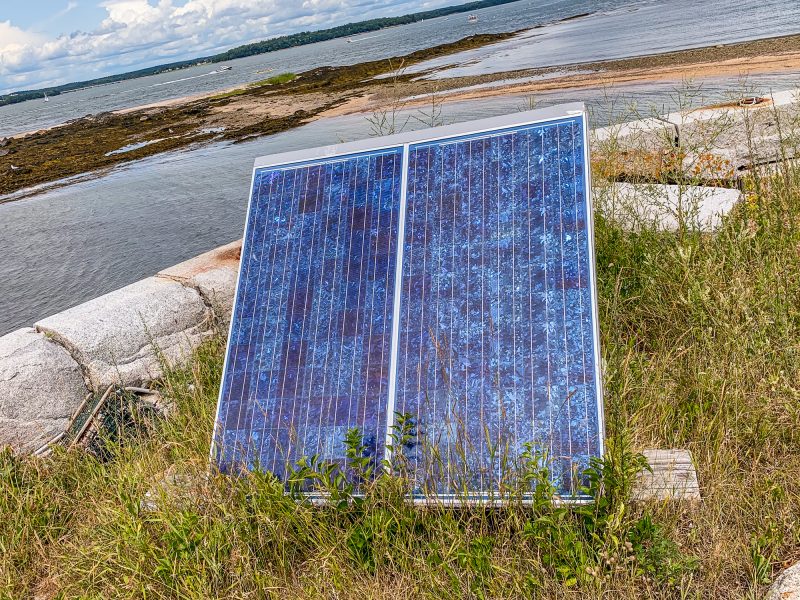
Source: Portland Paddle
... to a power a light that shines on the American flag.
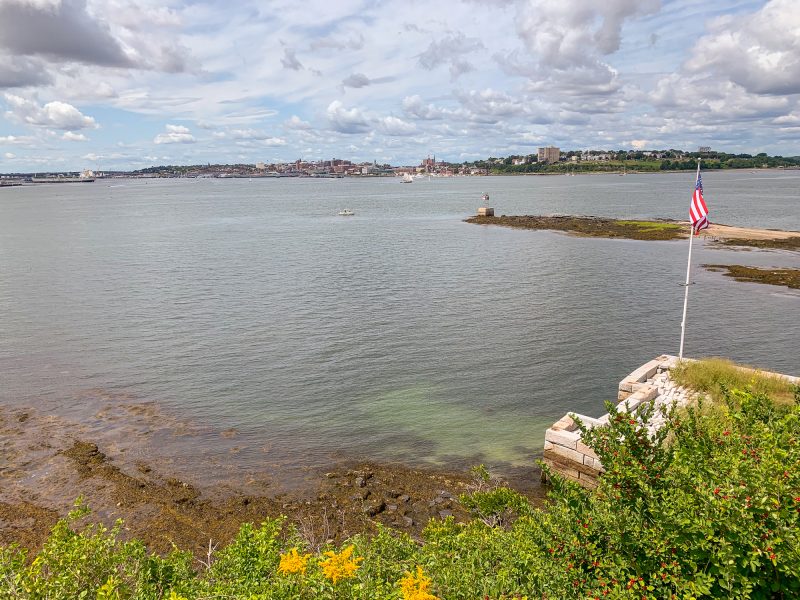
Source: Portland Paddle
After World War II, Fort Gorges was abandoned until 1960, when Portland, Maine, acquired it and added it to the National Register of Historic Places.
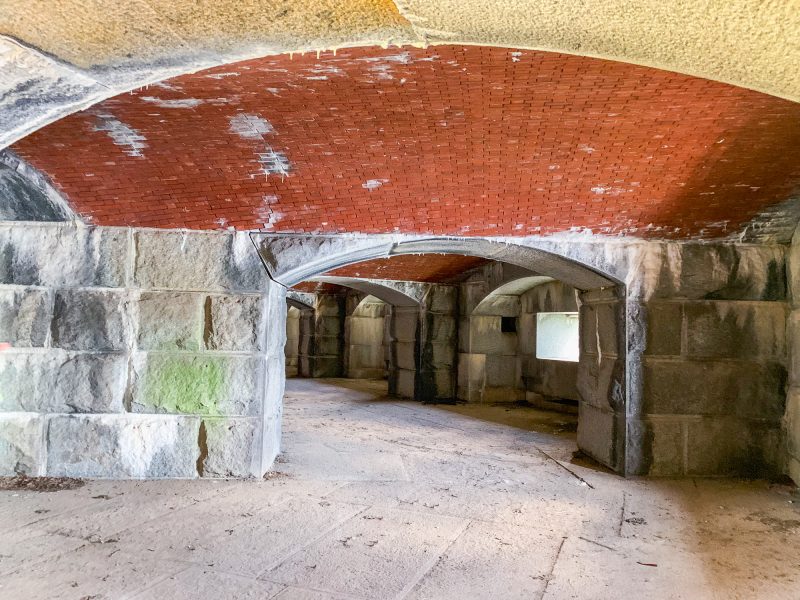
Source: "The Forts of Maine"
Today, the fort functions as a park. Tours are offered regularly, and sometimes events are hosted at the fort. We toured the fort with Portland Paddle.
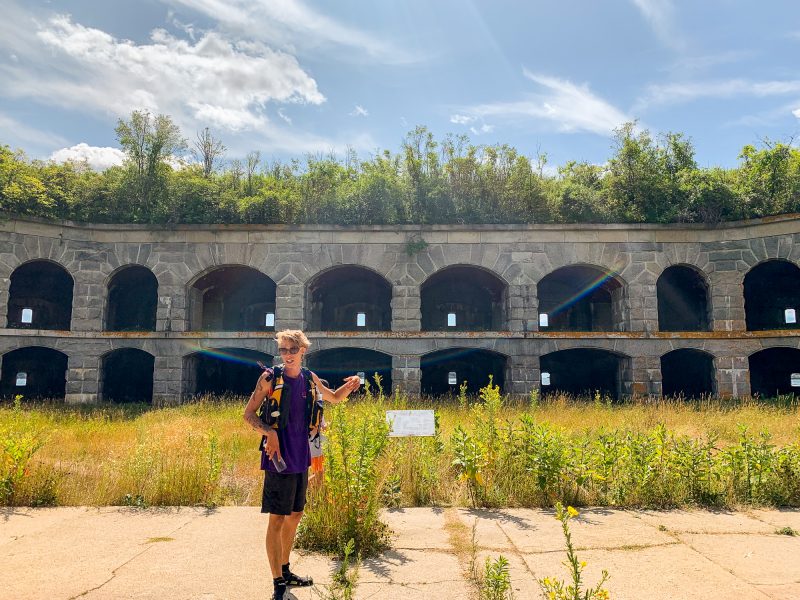
Source: Friends of Fort Gorges, Portland Paddle
The inside of the fort is open to the public at your own risk, and being inside the fort helped us understand why …
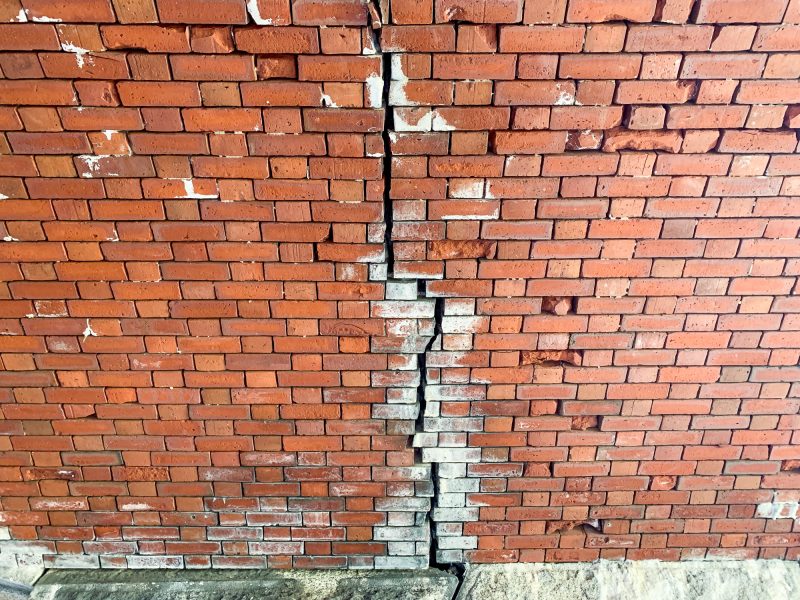
... this place really is crumbling, with rubble and debris in some parts.
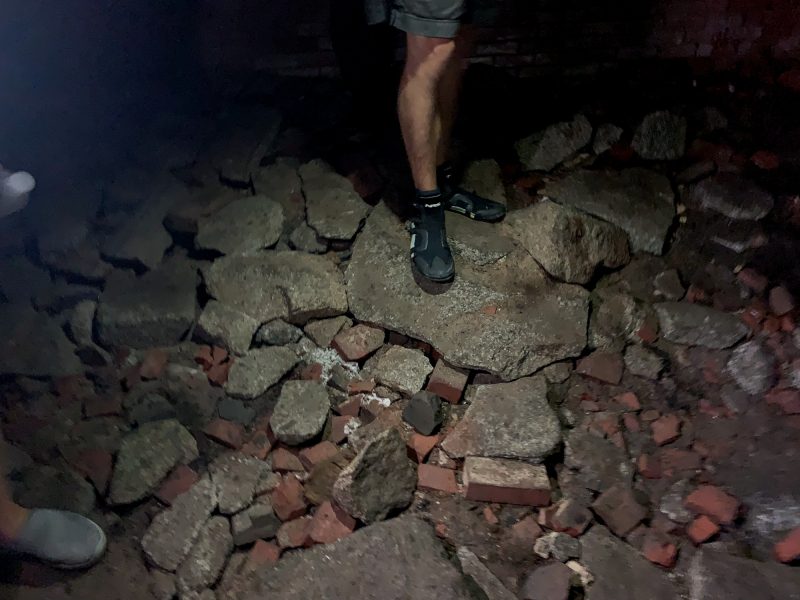
We entered this huge, cavernous room without any windows where gunpowder used to be kept. Without any lights, it was truly pitch black and a little eerie.

Luckily, we were able to use our phone flashlights, but our tour guide showed us that, back in the room where they stored gun powder, they had to put lamps from the other side of the wall into that opening to light the room ...
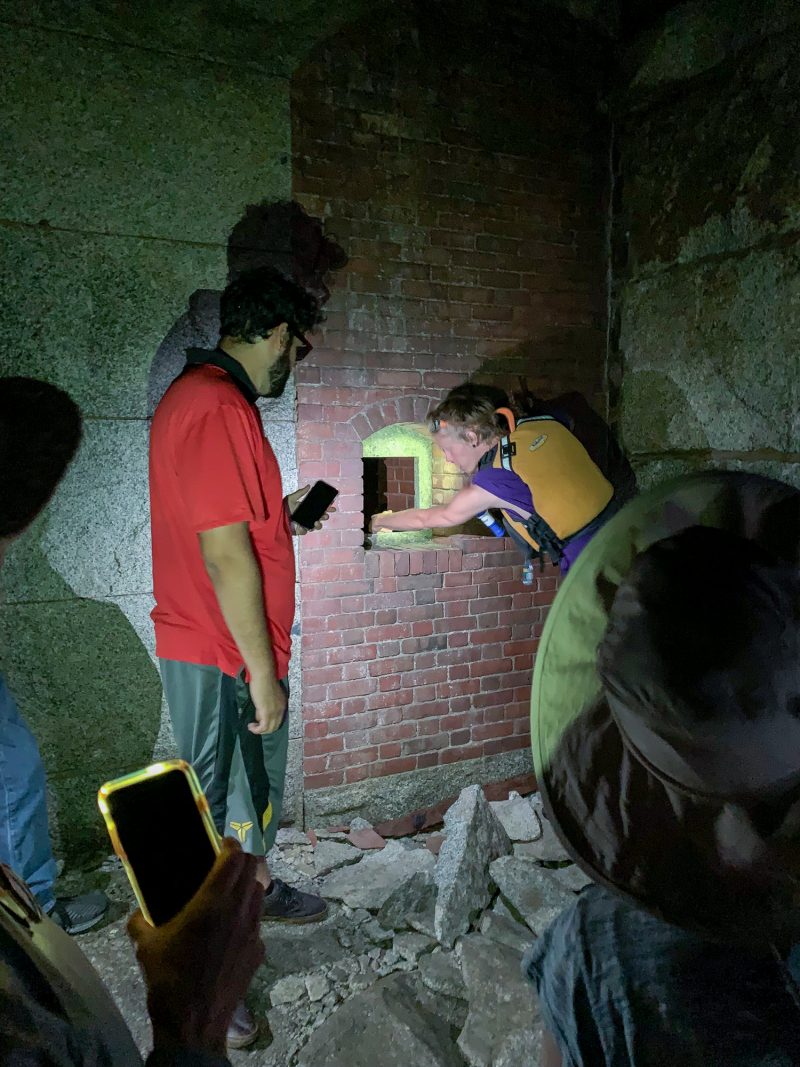
Source: Portland Paddle
... since you couldn’t bring a lamp into this room, which is called the Great Powder Magazine. This room is designed to stay dry and is located in a spot that isn't likely to be attacked. Lamplight + gunpowder wouldn’t have been a good mix.
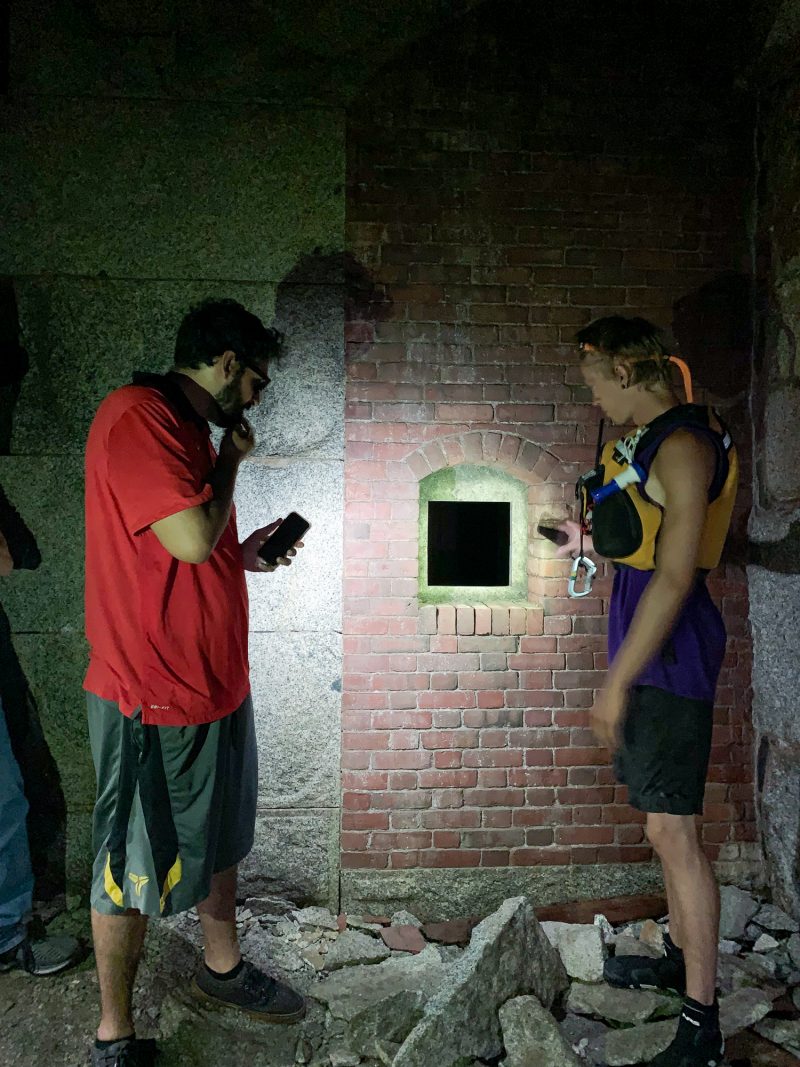
Source: Portland Paddle
Without light, we would have been completely oblivious to signs of extreme damage and decay.
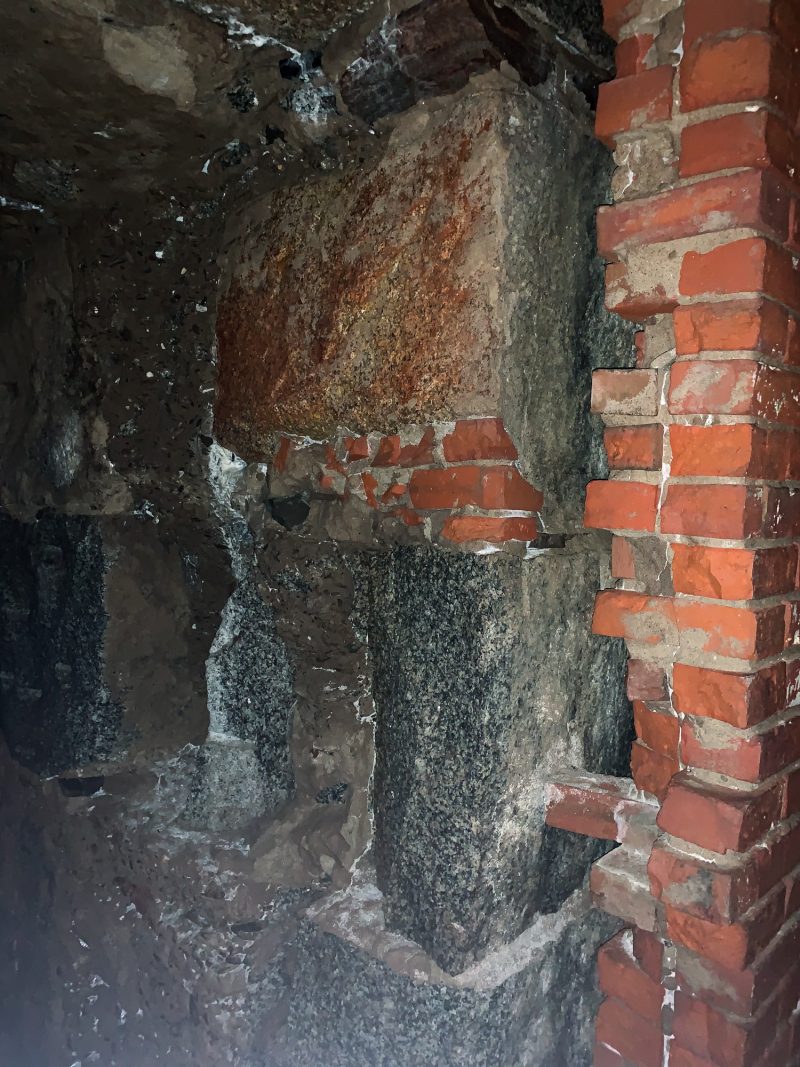
Some areas were extremely dark aside from slivers of light.
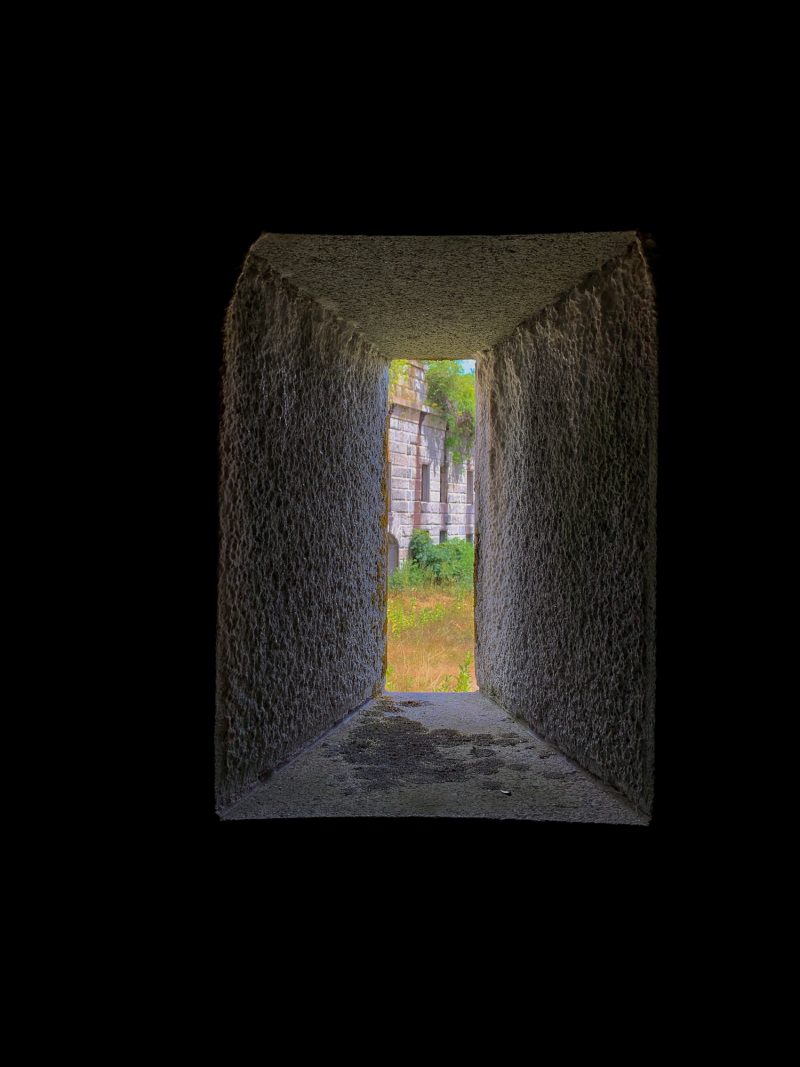
And even in the light, stalagmites and stalactites hang from the brick arches of the gun platforms.
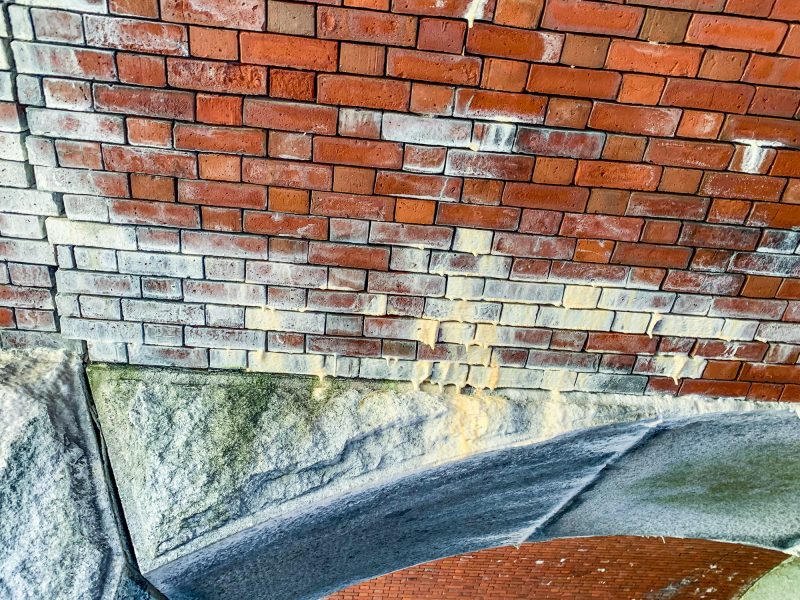
According to the Press Herald, Fort Gorges is one of Maine's most endangered historic places.
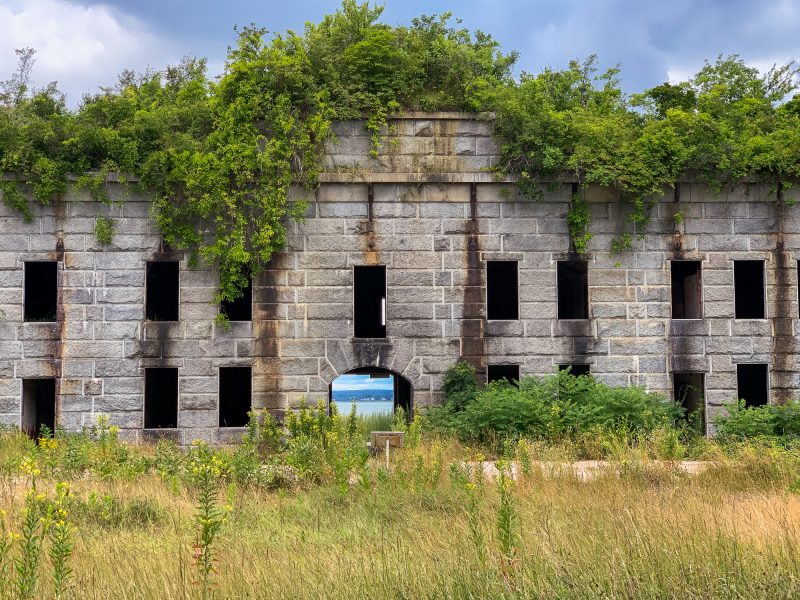
Source: Press Herald
A lot of this has to do with location. Fort Gorges is totally exposed and located in the ocean. So not only has it been standing for 155 years ...
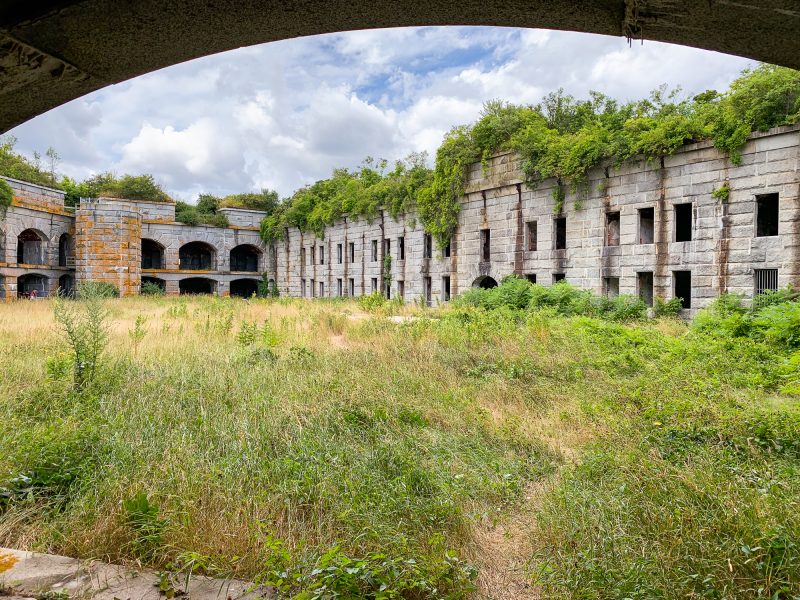
Source: Maine Preservation
… it’s also been enduring brutal weather that has impacted the foundation of the structure.
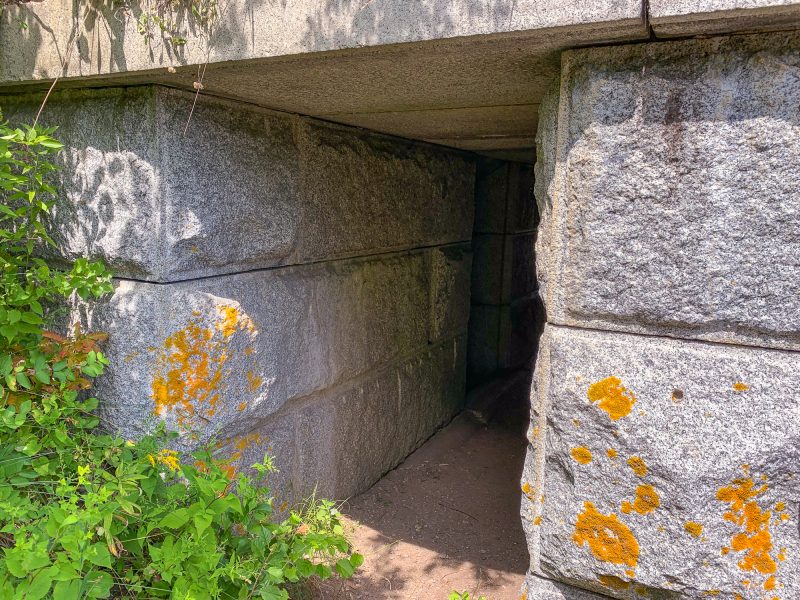
Source: Maine Preservation
If it continues this way without any plans for restoration ...
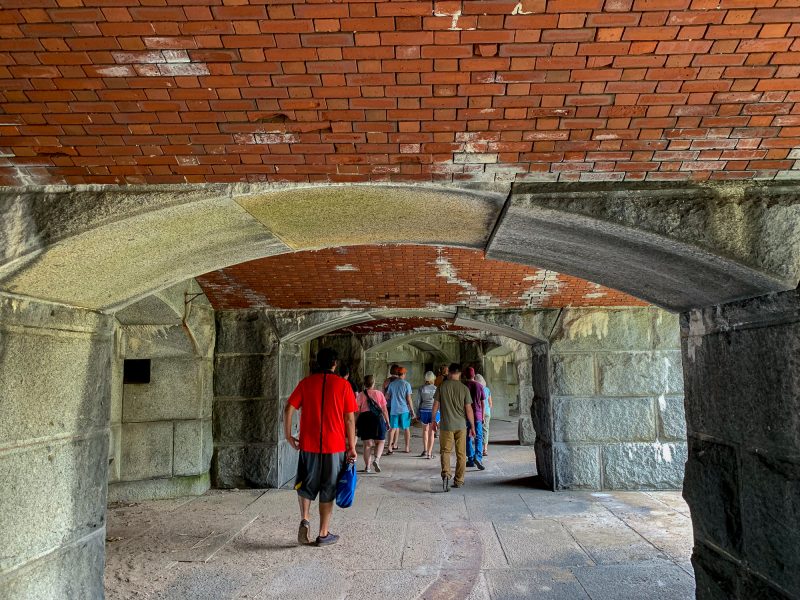
Source: Maine Preservation
… the site will eventually be deemed unsafe for visitors.
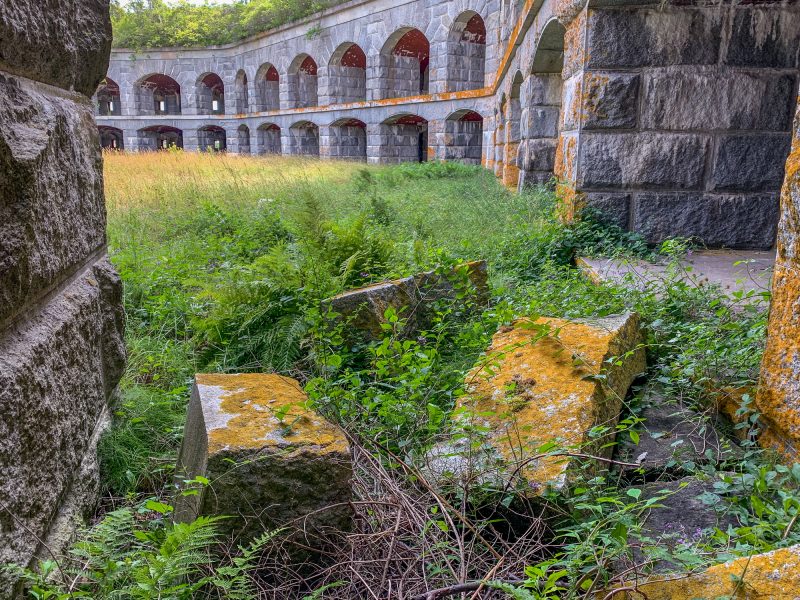
Source: Maine Preservation
In the summer of 2019, Friend of Fort Gorges started a fundraising campaign to raise $250,000 for the fort’s most time-sensitive repairs.
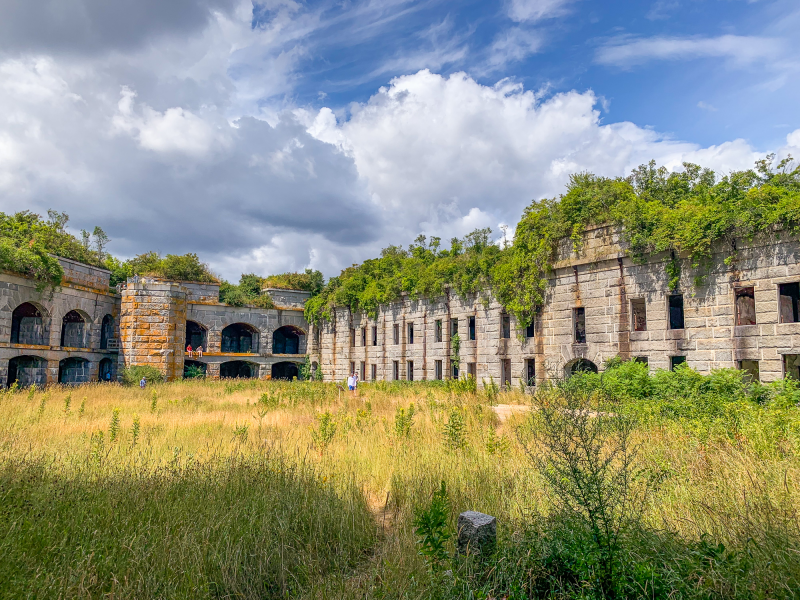
Source: Maine Preservation
But some have other ideas about the fort’s future. Developer and Portland resident Mike Dugay wants to commercialize the space.
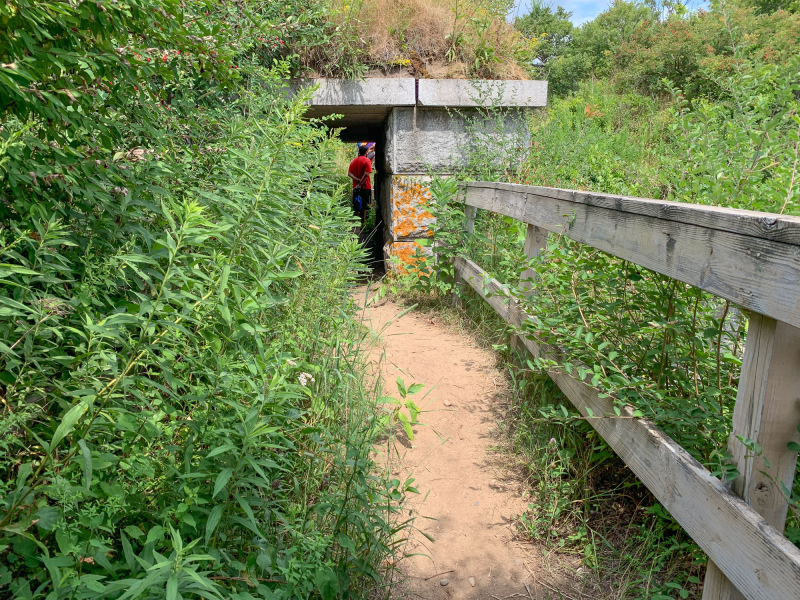
Source: Press Herald
Dugay’s plan includes a restaurant, brewery, and eventually a bed and breakfast in the now-inaccessible historic officer's quarters. However, the idea wasn't supported by the public.
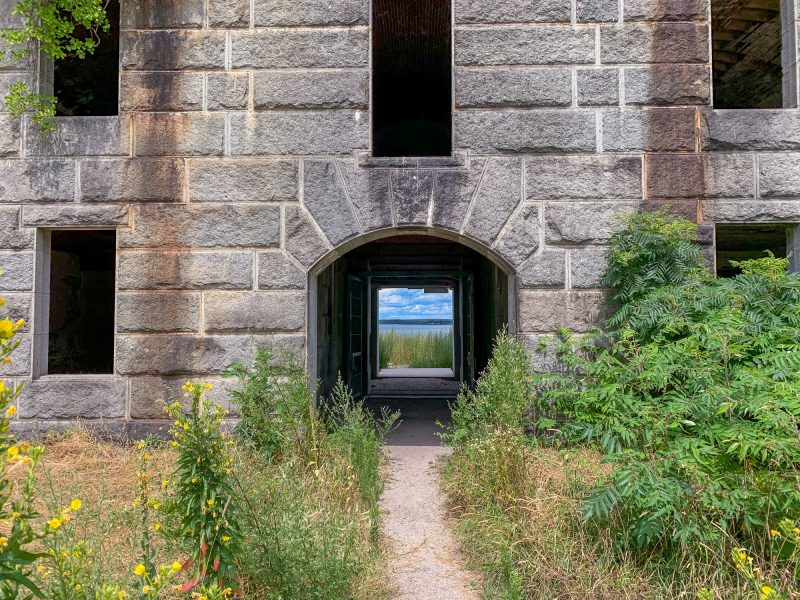
Source: Press Herald
Although Portland's city council has the final say in what happens to the fort, the public informally voted against commercial partners being involved with preservation.
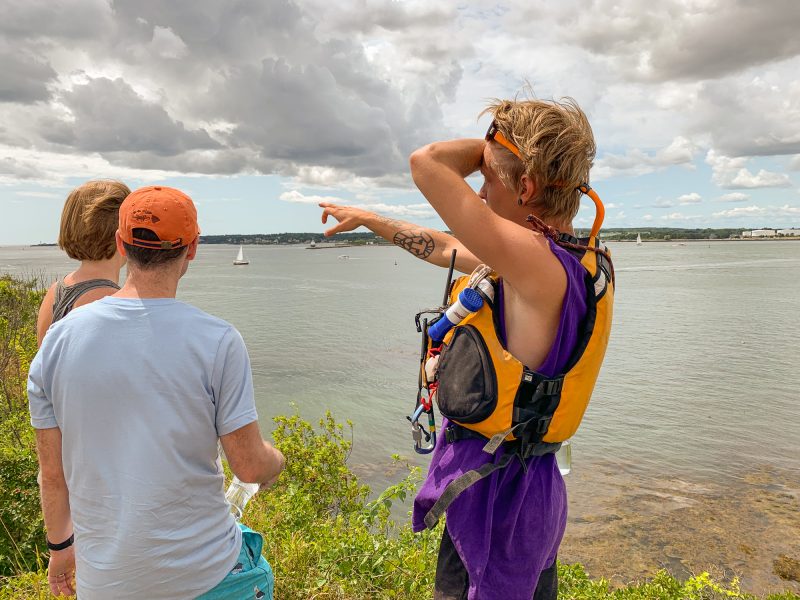
Source: Press Herald
Instead, they voted for a combination of public and private partners including Friends of Fort Gorges to fund the preservation efforts on Fort Gorges.
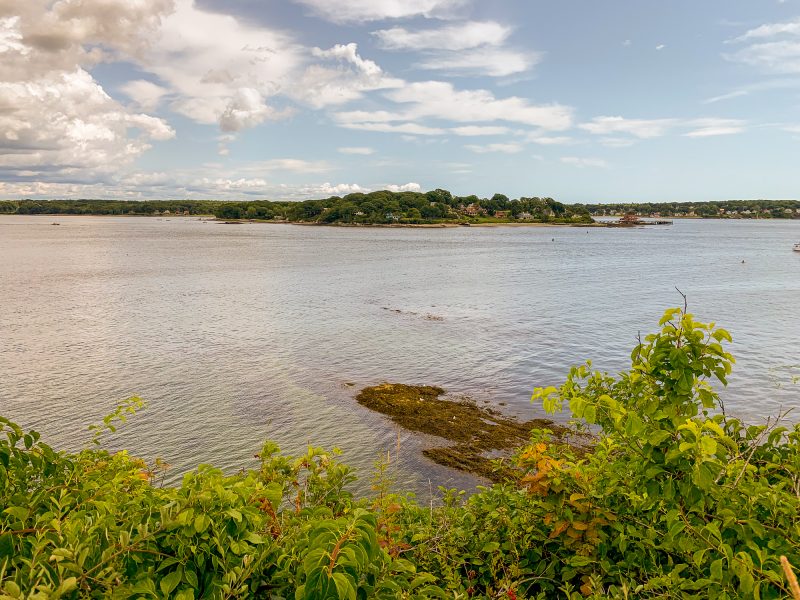
Source: Press Herald
After finishing our three-hour tour that consisted of two hours of kayaking and one hour of exploring, we said goodbye to the group and headed to Highroller Lobster Co. in Portland, where we treated ourselves to another piece of Maine’s history — delicious lobster rolls.

